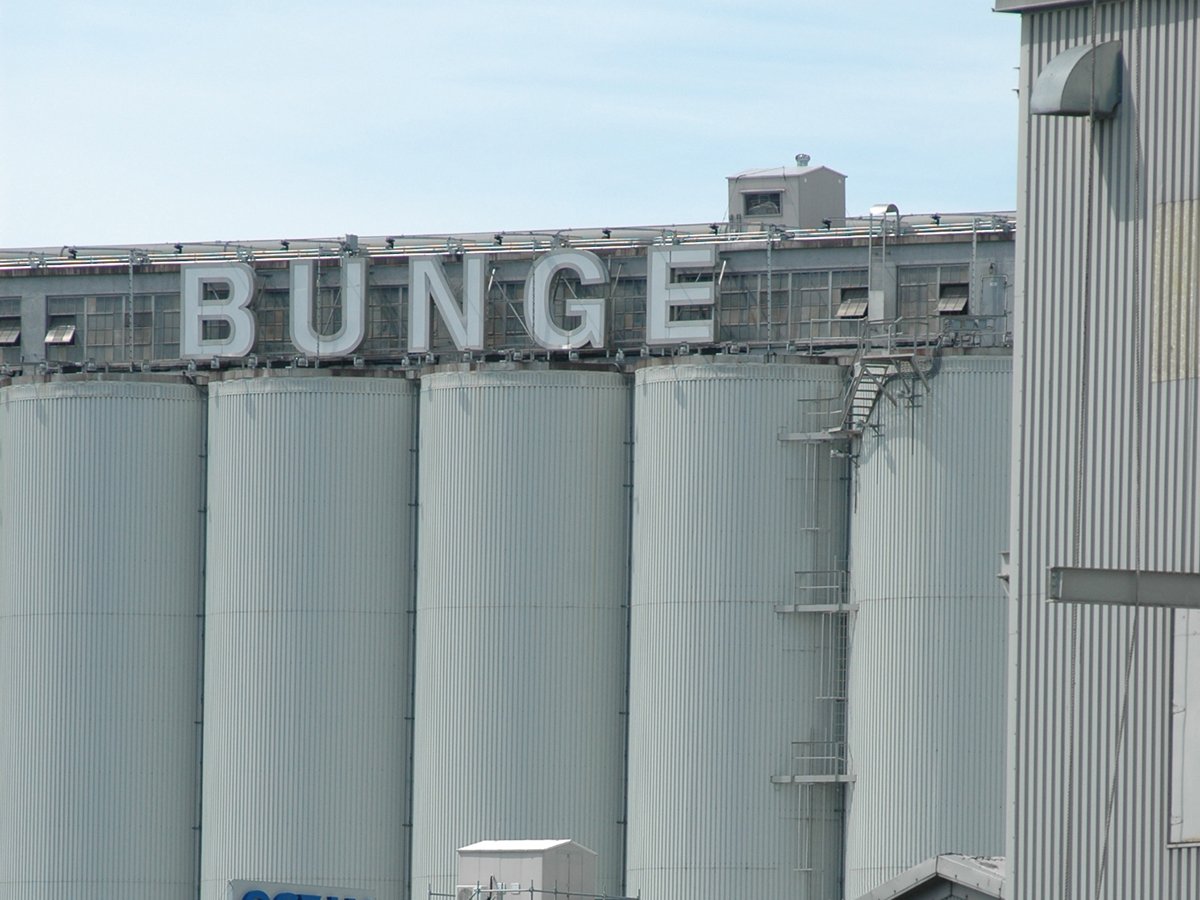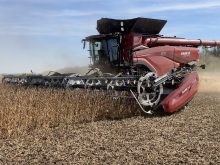HARSEWINKEL, Germany — In the German countryside, between winter wheat and corn fields and off the autobahn, sits a town that proudly refers to itself as Combine City.
Harsewinkel, population 24,000, is home to Claas.
The 98-year-old, family owned farm equipment business sells more than $3.4 billion in machinery a year. It has 9,000 employees worldwide, 3,400 of whom work at its 400,000 sq. metre facility in Harsewinkel making combines, forage harvesters and high horsepower tractors.
The company’s assembly lines run a single shift from January to July, with the exception of the paint plant.
Read Also

Bunge’s crop mix is changing
Bunge has predominantly been a soybean processing firm, but that’s about to change after the merger with Viterra with softseed processing and grain merchandising gaining ground.
“This is a family business,” said Heinrich Pieper of Claas. “It is still run like a family business, just that it got very, very big. Our co-workers here, like in all of the 13 other factories around the world now, are sharing in the success of the company.”
The company was started in 1913 and by the end of the First World War was building hay balers, obtaining its first patent in 1921 for a bale twine knotter.
“We have over 6,000 patents today,” said Pieper.
Germany’s first combine was a Claas, released in 1936, and by 1953 it had a self-propelled version.
Forage harvesters arrived in 1973, adding to the company’s baling and mowing capacity. The company took over Renault’s tractor business in 2005.
Expansions in Russia and India have resulted in rapid growth over the past 15 years. The release of the Lexion line of combines, paired with Caterpillar power systems and North American distribution, expanded global markets for machines that were designed for high capacity in small grains and oilseeds under difficult harvest conditions.
Leif Magnusson of Claas North America said the company designs its combines to work in the difficult conditions that can be found in northern Europe.
“Like on the Canadian Prairies, we can get wet and cold affecting the harvest,” he said while sitting above the company’s sprawling trade show presence at Germany’s Agritechnica farm show.
“The machines will work in the (U.S.) Midwest just fine, but the Lexion is designed to manage cereals, and their straw, and oilseeds in less than ideal circumstances, such as it can be here (in the Westfailia and Lower Saxony regions of Germany).”
Tough conditions don’t just happen on the farm. Claas weathered the low commodity prices era with a slow but steady growth plan, said Theo Freye, spokesperson for Claas’ executive board.
“Being privately held, Claas can make decisions that would be difficult for publicly traded operations,” he said at Agritechnica.
“For instance, after the economic crisis we stayed in Moscow, we didn’t cut jobs and pull out like some other companies did,” he said about the company’s new Russian arm and new combine factory, completed in 2005 in the heart of that country’s grain region near Krasnodar.
Freye said Claas believes in building its machines in farming regions where they are used. This includes its home plant in Harsewinkel and its Lexion combine facility in Omaha, Nebraska.
“We can take a long, sometimes conservative, but long view about business,” Freye said.
The company builds many lines of equipment that aren’t prevalent in North America, such as some haying equipment, smaller combines, rice harvesters and many of the 13,000 tractors built each year at Le Mans, France, southwest of Paris.
Magnusson said he feels the improved economic margins of recent years in Western Canada and the Great Plains states might be creating new markets for premium mid and high horsepower, multi-use tractors with a lot features oriented to precision agriculture, improved operator comfort and reduced operator fatigue.
“We have some very loyal customers now (in parts of Western Canada), but it takes dealers, as we know with the (Lexion) combines, and we are building that steadily,” he said.
The company recently expanded its dealer network to Lloydminster.
Freye said 2007 and 2008 represented a significant increase in sales for the company. The two subsequent years were lower, but its margins and overall sales remained high.
Freye said farmers are doing well, and “we benefit from that, but over time we built the company’s capacity and products to take advantage of these opportunities, just like the farmers (of Western Canada have done).”














